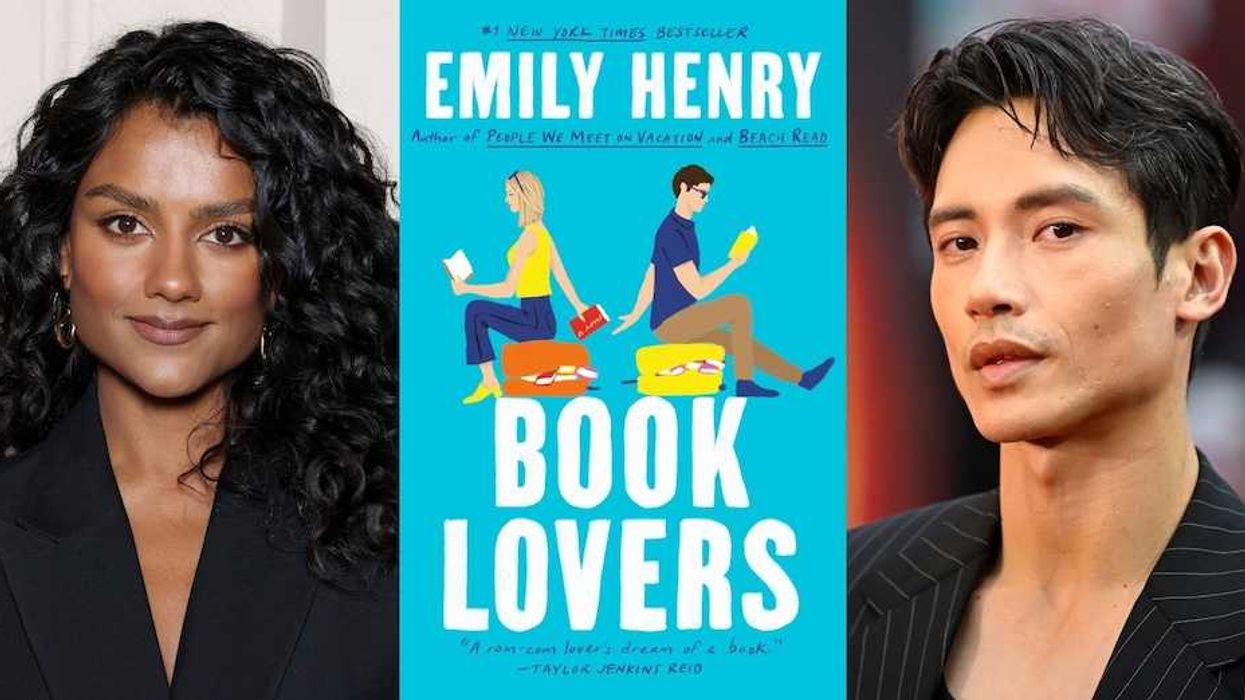Escape with these women who know when to walk away.
3 New Books to Help You Escape the World RN

We all know that responsibilities (those things that make you get out of bed) are terrible. Work piles up, loved ones (and not-so-loved ones) demand our help and attention and sometimes you just can’t even. In this week’s book club, we turn to three escapist fantasies: three stories starring women who seek to get away from it all in extreme fashion. Read on, pick one of these books up and escape your own responsibilities — well, for at least a few hours anyway.
1. Black Wave by Michelle Tea ($12): Black Wave reads like a memoir with a twist — the memoirist’s world is rapidly (and literally) coming undone around her as she writes. Michelle, “a poet, a writer, the author of a small book published by a small press that revealed family secrets, exposed her love life, and glamorized her recreational drug intake,” is still dealing with those addictions: doomed romantic interludes with absolutely the wrong women, increasing drug use and the cooler-than-thou world of San Francisco’s Mission District in the heyday of the 1990s. Things, however, were about to change radically for this radical.
“Every time Michelle blinked a familiar place had shimmered into an alien establishment.” When the artists begin to leave town and are supplanted by pricey rents and corporate culture, Michelle feels the need to flee the city she can’t seem to quit and heads toward Los Angeles, thinking she’ll find herself a new life and grow up a little. Instead, she has to grow up a bit faster than that, as we’re treated to scenes from an alternate universe where chaos reigns and the natural world has almost been completely devastated. It’s almost like the world is trying to escape itself, as the warnings go up for its imminent destruction in less than one year.
Black Wave has a potential message about addiction and its analog in how humanity is destroying the environment, as Michelle begins to write her own self-referential novel and turns suddenly clear eyes toward the end of her known universe, a world poisoned by and now poisoning its inhabitants. It’s not a lecture, though, but a wild escape from the ordinary, a book that’s very aware of itself and its art. BUST says, “This book exists in a new kind of literary ecosystem —one that doesn’t need to fit neatly into the structures of an older era.”
2. Leave Me by Gayle Forman ($18): There’s an old saying: “A mother’s work is never done.” But what if you’re a mother, and you’re just done with the concept? In Gayle Forman’s Leave Me, lead character Maribeth works herself into an early heart attack; her husband Jason’s foray into music has her doing all the housework, while working a stressful full-time job and being almost solely responsible for their four-year-old twins’ care. When, in the aftermath of her heart surgery, Maribeth’s adoptive mother refuses to lift a finger to help her and Jason calls her selfish, Maribeth has had more than enough of both physical and emotional labor. Figuratively strapping herself into her escape pod, she jettisons her former life and takes off.
Maribeth’s new life has its own complications, with possible romance coming from a handsome but circumspect new cardiologist she’s hired to fly under the radar, and a friendship with a woman she meets in her search to find her birth mother. “She felt almost tearfully grateful to be off the hook, and residually angry because she was always on the hook,” writes Forman of the harried Maribeth (sound familiar?), who has just convinced her reluctant husband to make dinner while she “slacks off” by having a stent placed in a coronary artery.
Forman, a celebrated author of teen lit (like If I Stay, the winner of several awards and a film adaptation), gives us her first adult novel, one of the hotly anticipated new releases of the year. Kirkus describes the book as “an appealing fairy tale for the exhausted and underappreciated,” which, hello, would pretty much be all of us. If you’re thinking about walking off, give this a read first.
3. Nine Island by Jane Alison ($10): J, the main character and narrator of Nine Island, is walking away from even the idea of having a relationship. She’s left a decade-long marriage behind, moved to live on her own in a depressing apartment complex by a Miami beach (“no country for old women”), and is witnessing the slow decay of her neighbors, her blind and deaf cat and her aging mother.
J works on her translation of Ovid (her guide to love since teenagehood) while staring out the window of her box of a home, finding escape in the human dramas she witnesses across the way. She wonders if finally giving up on romance and dating will be the freeing action she needs. “Such a sickness, wanting,” she writes. “No end?” J’s mother, a similar wanderer through the world of relationships, commiserates with her that perhaps it really is time to walk away.
J addresses the audience directly, as if we’re watching her through her own window. Like the glimpses J gets of her neighbors in the building across the street, Nine Island is an episodic look into J’s life and musings. First initials and nicknames abound, from old flings Lurch and Sad Eyes to Sir Gold, the instigator of J’s first heartbreak three decades ago and then the final, heartbreaking month-long relationship that convinced J it “Should be good to give up on disaster.” Does she return, or does she walk away without looking back at the explosion? You’ll have to escape into this tale to find out.
What books help you get away? Tag us in your next escapist read @BritandCo.
(Featured photo via Getty)



















